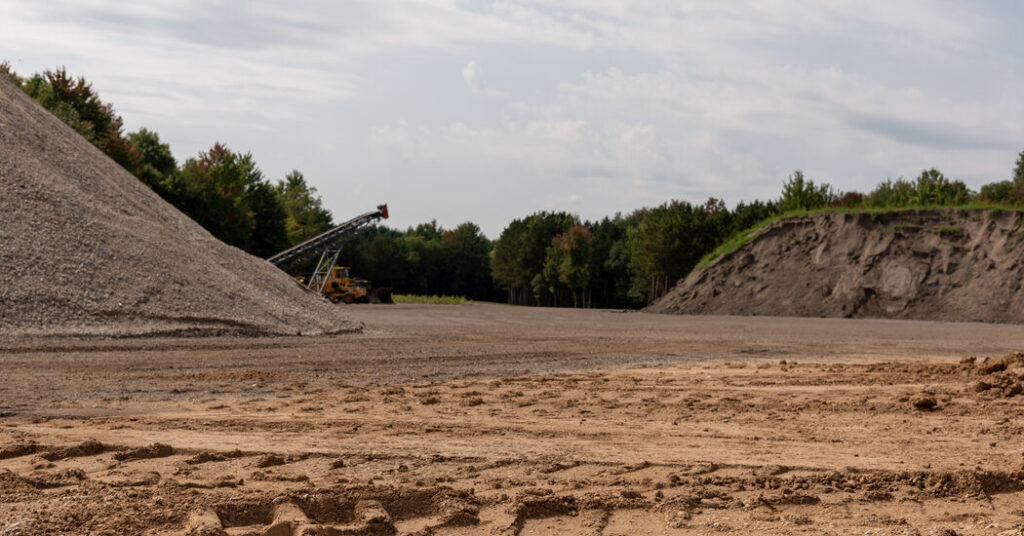The Biden administration is seeking to significantly expand its authority to block foreign investment and make it more difficult to buy land near military bases, a move that could make it more difficult for Chinese companies to build factories in the United States.
The U.S. Treasury Department on Monday proposed a new rule that would add more than 50 military installations in 30 states to a list of locations it considers sensitive to national security. If enacted, the rule would support a 2018 law that gives the Committee on Foreign Investment in the United States the power to block foreign purchases of land within certain limits of the base.
The proposal comes as Democrats and Republicans in Congress are increasingly concerned that Chinese investment in the United States threatens national security and as the Biden administration introduces new tariffs to restrict imports of Chinese electric vehicles and solar panels.
The U.S. Treasury Department said the move was the result of a long-term review of the committee’s jurisdiction and was not targeted at investments in any particular country.
“CFIUS plays an integral role in U.S. national security by thoroughly scrutinizing real estate transactions near sensitive military installations, and this proposed rule would significantly expand its jurisdiction and ability to accomplish this important mission.” Treasury Secretary Janet Yellen said in a statement, using the committee’s abbreviation.
The rule would give the commission authority to review real estate transactions within 1 mile of 40 new military installations and within 100 miles of 19 new military installations. The new additions to the list are the result of reviews by federal agencies, including the Department of Defense, to determine which facilities are most sensitive.
“This is really significant because it shows that the Department of Defense is taking a more aggressive stance and is becoming more risk-averse about property around military installations,” said J. Philip Ludvigson, a partner at the law firm King & Spalding, which deals with foreign direct investment. Related National Security Risks.
The rule could further complicate efforts by Chinese entities to invest in the United States. Such investment has been declining in recent years as anti-China sentiment grows and regulators scrutinize deals more closely.
In May, President Biden issued an order forcing a Chinese-backed cryptocurrency company to divest property it owned near a Wyoming nuclear missile site.
A Treasury official declined to say whether the new rules would affect a $2.4 billion manufacturing plant being built in Greenchart, Miss., by Chinese electric vehicle battery maker Guoxuan Hi-Tech. The plant is too close to Camp Grayling, a National Guard training facility less than 100 miles away.
The department included Camp Grayling on its list of other proposed sites. The rule does not apply retroactively to completed transactions, but if a company attempts to purchase additional properties related to the project, those acquisitions can be reviewed.
Chuck Thelen, Guoxuan Hi-Tech’s vice president of North American manufacturing, said in a statement that the company is moving forward with building the factory and does not believe the new regulations will apply to the land it has already purchased.
“If Guoxuan decides to purchase additional properties in the future, it will continue to welcome and encourage any additional CFIUS review,” Mr. Thelen said.
The Biden administration is also reviewing Nippon Steel’s acquisition of U.S. Steel, something Biden has made clear he does not want to happen. The proposed real estate rules are unlikely to affect that review, which would be based on national security concerns and not just the location of the property the Japanese company would acquire.
John Kabealo, a Washington attorney who specializes in cross-border transactions, said the Treasury Department may expand the list of military installations because CFIUS cannot review certain real estate transactions that have caused problems. There are currently 227 military bases on the commission’s real estate review list.
“In its initial form, the impact of the real estate transaction will be relatively minor,” Cabello said.
Dozens of states have been taking their own measures to limit foreign investment amid concerns that the federal government is too lax.
A new law in Florida is the most far-reaching, effectively banning most Chinese nationals without green cards from buying residential properties.

